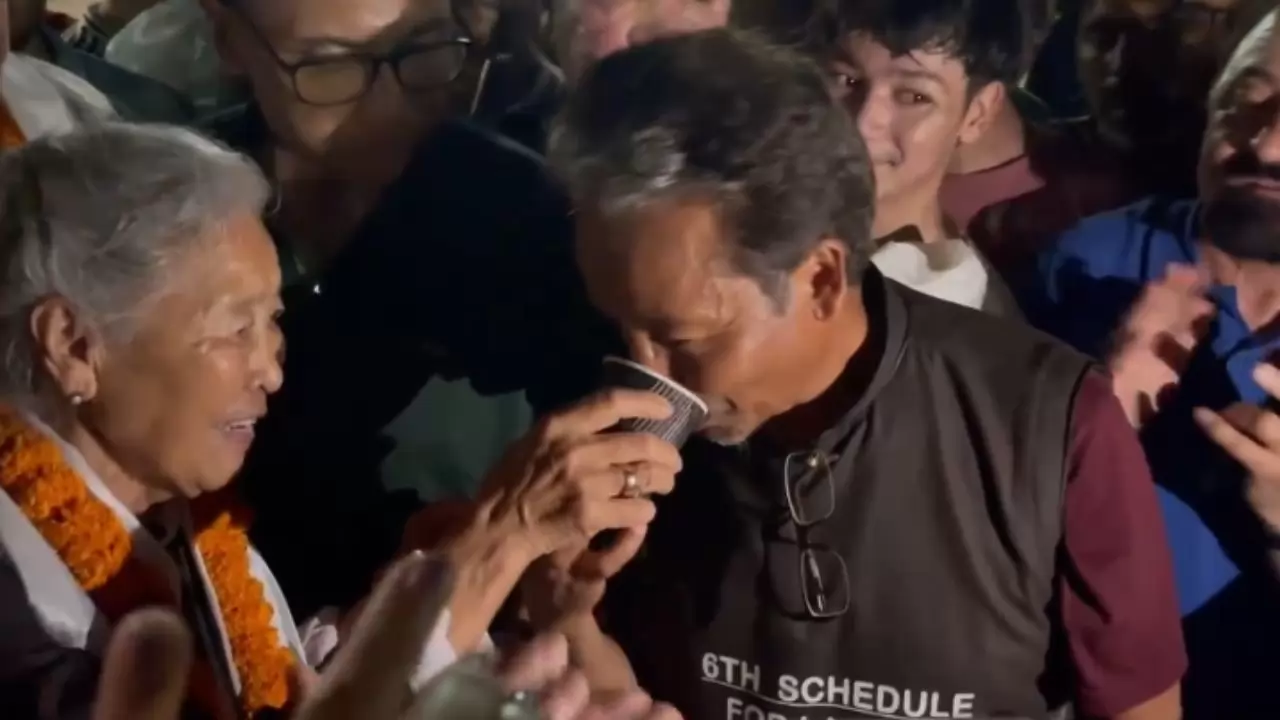
Sonam Wangchuk breaks fast (X/yogitabhayana)
Renowned Ladakh activist Sonam Wangchuk, who was detained by Delhi Police earlier this week, was released from Bawana Police Station on Wednesday. Following his release, Wangchuk was escorted by a team of Delhi Police to Rajghat, where he paid tribute to Mahatma Gandhi on the occasion of Gandhi Jayanti. At Rajghat, the activist symbolically ended his fast by drinking coconut water.
राजघाट पर @Wangchuk66 जी ने अपना अनशन नारियल पानी पीकर तोड़ा !! pic.twitter.com/fBO4KysgwZ
— Yogita Bhayana योगिता भयाना (@yogitabhayana) October 2, 2024
Wangchuk, along with approximately 120 others from Ladakh, was detained on Monday night, September 30, 2024, at the Delhi-Haryana border. The group was marching from Leh to New Delhi to demand constitutional safeguards for Ladakh under the Sixth Schedule of the Constitution. The foot march, which began on September 1, was intended to conclude at Rajghat on October 2, Mahatma Gandhi's birth anniversary.
The detentions, which also included the arrest of Ladakh MP Mohmad Haneefa, triggered widespread protests in Ladakh. On October 1, the Kargil Democratic Alliance (KDA) and the Leh Apex Body (LAB) called for a bandh across the region, demanding Wangchuk’s release. In response, shops across Ladakh remained closed, with residents voicing their support for the activist and advocating for the region's constitutional rights.
Wangchuk and his fellow protesters have been advocating for Ladakh's inclusion in the Sixth Schedule, which would grant the region greater autonomy and protect its land and cultural identity. The march was organized by the Leh Apex Body (LAB) and the Kargil Democratic Alliance (KDA), both of which have been leading efforts for these safeguards for the past four years.
The release of Wangchuk and other detained individuals has been a key focus of the protest, as they push for renewed dialogue between Ladakh's leadership and the central government regarding the future of the region.





Copyright © 2025 Top Indian News
